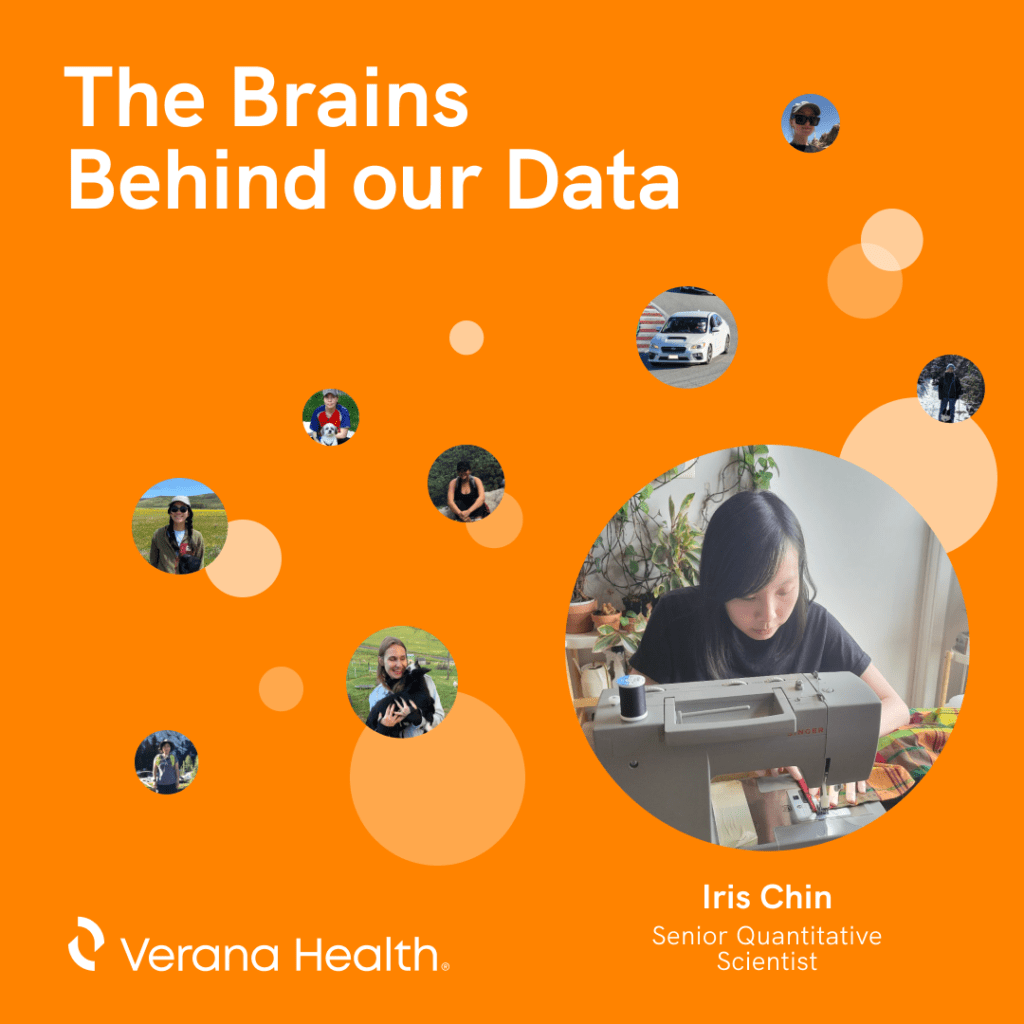Get to Know Our Quantitative Sciences Team: The Brains Behind Our Data (Iris Chin)
Author:
Verana Health
Verana Health has a team of more than 30 quantitative scientists who work toward the goal of producing high-quality, data-driven insights that can help inform research and improve patient outcomes.
In this blog series, we invite you to “Get to Know Our Quantitative Sciences Team: The Brains Behind Our Data.” Read more about Iris Chin, senior quantitative scientist.
Q: How would you explain your role?
A: My role largely involves creating a variety of algorithms to extract structured information from unstructured data, such as clinical notes. A lot of rich information about a patient’s journey can be found in clinical notes. However, because the clinical notes are unstructured, it is not easy to draw insights from the information captured by clinicians. As such, much of my work involves leveraging a variety of techniques, ranging from rules-based approaches to deep-learning methodologies to extract and transform the unstructured information into a more usable structure that can enable analyses and the ability to draw meaningful insights.
Q: What attracted you to the Quantitative Sciences field?
A: I’ve always been interested in puzzles and figuring out how using different pieces of information and data can work together to solve problems. I also really enjoy programming. The quantitative sciences field allows me to do both!
Q: What attracted you to Verana Health?
A: Verana Health’s mission to enable and accelerate more effective and efficient research, alongside its access to large and rich data sources across multiple therapeutic areas, made it a really attractive company to me. Together, it seems poised to make real impacts on patients’ lives. Additionally, working with such large real-world datasets can be a unique challenge that provides a lot of opportunity to grow one’s different skill sets.
Q: What inspires you to do this work?
A: Throughout my career, I’ve strived to use my skill sets to improve health outcomes, whether it’s improving efficiencies in the hospital setting, finding ways to improve clinical trial design, or curating datasets that better enable research. My goal is to make a positive impact, no matter how small that impact might be.
Q: What is the most rewarding part of your job?
A: Contributing to the creation of complete modules for specific disease areas, especially when those modules contain variables that have been previously difficult to capture, but can now unlock potential real world studies, has been really rewarding.
Q: What advancements do you see in your field in the next 5 years?
A: With the increased popularity in large language models (LLM), I’m hoping the access to and ease of use of these models will be more readily available such that they can be leveraged in both our curation as well as ingestion efforts. That being said, knowledge in the type of data used to train these models, and their interpretability, will be important in understanding how well they can be applied to our work. I’m hoping with the increased interest in LLM, we will also be equally informed of its limitations and gain a better understanding of appropriate (and inappropriate) use-cases.
When she’s not programming or problem solving, Iris enjoys sewing.


Let's Accelerate Research Together
To learn more about Verana Health, please fill out the information below and our team will follow up with you as soon as possible.

